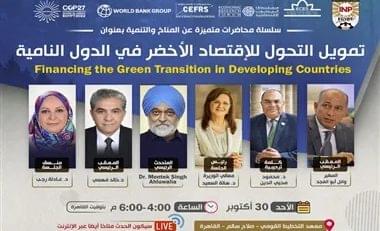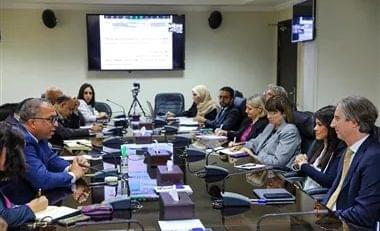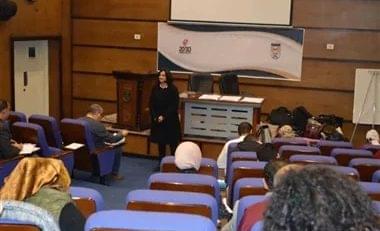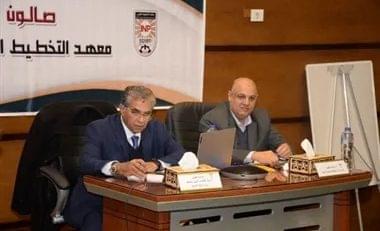The Institute of National Planning, headed by Dr. Ashraf Elaraby, organized a lecture on the economic performance of the State of Tunisia and the reforms it has witnessed over the past 60 years, by presenting a book by Dr. Mustafa Kamal El Nabli, Minister of Planning and Development and former Governor of the Central Bank of Tunisia, entitled “Economic Development in Tunisia…Why Better than most Middle Eastern countries, not East Asian countries?
During the lecture, Dr. Mustafa Al-Nabli discussed the differences he observed in his book on growth and development, and the various factors behind them in each of the countries of the Middle East and North Africa (MENA) and East Asia during the period 1960-2020, and compared the initial positions of government institutions and policies, and the dynamic responses to changing conditions. As well as the inability of the governments of the Middle East and North Africa to achieve both the desired economic and political reform.
Al-Nabili pointed out that the book was based on examining the economic and social results of Tunisia from a comparative perspective, the process of structural transformation and long-term growth in it, and the reasons for the failure of development in Tunisia compared to the countries of East Asia despite its superiority over the countries of the Middle East, in addition to analyzing the mechanism of the political economy of balance through Time between the roles of the state, markets, and the private sector.
Nabli pointed to the main similarities between Tunisia and East Asian countries in the results of poverty reduction, human capital accumulation, and economic growth, noting that there are three main determinants of the differences in growth outcomes represented in the limited structural transformation in Tunisia, and the weak labor market dynamics in the employment rate. High unemployment, delayed gender equality, and low participation of women in the labor force.
The former governor of the Central Bank of Tunisia reviewed the factors of Tunisia’s failure to keep pace with the economic performance of East Asian countries, including resistance to change, the state’s domination of infrastructure and its operation, utilities, energy and mining, education and health, limited adaptation and slow reforms, in addition to setting regulations that led to distortions in various sectors. Economic activities, and the freezing of the private sector, which led to the creation of a difficult business environment until 2020, made companies in Tunisia classify the obstacles they face as more serious than most other countries.











